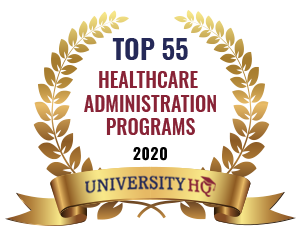
Important Announcement
We recently revised our MBA using an exciting new model! The content below refers to our old MBA, which we are no longer accepting new students into. Browse our new MBA.
All classes are 3 credits each. Students take 8 core classes, for a total of 24 credits. They will also take 4 classes in their chosen concentration, for a total of 12 credits. The entire program is 12 classes, for a total of 36 credits.
Core Curriculum
| Course Number | Course Title | Credits |
| ECON 515 | Financial Economics | 3 |
| BUSA 555 | Digital Media & Marketing | 3 |
| MNGT 625 | Operations & Supply Chain Management | 3 |
| MNGT 515 | Global Business | 3 |
| MNGT 615 | Talent Management | 3 |
| BUSA 660 | Strategy | 3 |
| MNGT 675 | Practicum | 3 |
| MNGT 665 | Ethics & Social Justice | 3 |
Leadership Concentration
| Course Number | Course Title | Credits |
| LEAD 604 | Organizational Behavior & Development | 3 |
| LEAD 614 | The Art of Decision Making | 3 |
| LEAD 624 | Leadership Theory | 3 |
| LEAD 634 | Managing Diversity & Conflict | 3 |
Social Impact Concentration
| Course Number | Course Title | Credits |
| BUSA 502 | Social Entrepreneurship | 3 |
| BUSA 512 | Organizational Sustainability | 3 |
| BUSA 522 | Managing a Socially-Minded Organization | 3 |
| BUSA 552 | Evaluating Social Impact | 3 |
Health Administration Concentration
| Course Number | Course Title | Credits |
| HMGT 696 | Healthcare Quality, Risk and Regulatory Compliance | 3 |
| HMGT 536 | Health Information Management Services | 3 |
| HMGT 526 | Healthcare Economics and Reimbursement | 3 |
| HMGT 596 | Healthcare Delivery Systems | 3 |
 Eastern was ranked among the Top 55 Best Healthcare Administration Colleges in the U.S. by University Headquarters!
Eastern was ranked among the Top 55 Best Healthcare Administration Colleges in the U.S. by University Headquarters!
Innovation & Design Concentration
| Course Number | Course Title | Credits |
| BUSA 508 | Theories of Innovation | 3 |
| BUSA 518 | Social Entrepreneurship | 3 |
| BUSA 528 | Intrapreneurship | 3 |
| BUSA 538 | Product Design | 3 |
Interdisciplinary Concentration
Select any 4 courses from any of the 4 concentrations above.
Course Descriptions
Students take 8 core classes, for a total of 24 credits.
ECON-515 Financial Economics-3 credits
A survey of accounting, finance, and economics necessary for the financial management of any organization. Students leave this course with a managerial command of these broad subject areas and are equipped to make organizational decisions based on the information received from financial reports and forecasting.
MNGT-515 Global Business- 3 credits
An analysis of the vast external environment in which organizations operate today that provides students with principles and strategies for navigating the complexities of the global market. Students consider global economic, political, and social factors that affect daily organizational operations. Additionally, students explore ethical and justice-related questions and gain a broader understanding of the world and how business operates within it.
BUSA-555 Digital Media & Marketing- 3 credits
An exploration of the use of digital media in marketing and the implications this has for organizations. Students gain knowledge of the marketing process and how marketing strategies are used to promote ideas, goods, and services in the information age by concentrating on online business, digital advertising, consumer data, and social media.
MNGT-615 Talent Management- 3 credits
A comprehensive survey of management practices that facilitate the development and maintenance of a sustainable talent pool. Students leave this course equipped with leadership and management strategies that improve organization member efficiency, motivation, satisfaction, and achievement in a way that helps the organization move toward its strategic goals.
MNGT-625 Operations and Supply Chain Management- 3 credits
Gain the knowledge and skills necessary to manage organizational operations and supply chains to meet consumer demand. Students leave this course with strategies to create an efficient and effective supply chain and the confidence to make strategic supply chain decisions.
BUSA-660 Strategy-3 credits
Develop the skills to craft and execute a strategic framework that builds competitive advantage and steward resources, talent, customer loyalty, and brand reputation. Students learn to develop and evaluate strategic plans that account for organizational mission and goals in addition to the external environment including economic, political, technological, social, and global factors they must confront.
MNGT-665 Ethics & Social Justice-3 credits
A critical analysis of questions of ethics and justice in organizational operations using an approach unique to Eastern University that emphasizes faith, reason, and justice. Sample topics include consumer protection, personnel management, and advertisement. Special attention is given to ways in which the Christian faith informs the motivation and structure of ethical decisions. Students leave the classroom prepared to deliberately and ethically face the quandaries of the modern marketplace.
MNGT-675 Practicum-3 credits
A student-directed applied learning project completed under faculty advisement designed to allow students to demonstrate their management competency. The project involves a product, service, organizational unit, market sector, innovative process/idea, or resolution to a significant organizational problem. Students demonstrate mastery of their program’s material by formulating recommendations and an associated action plan that incorporates critical analysis, sound business principles, ethical standards, and best practices into their work.
Students are required to take each course in the concentration, for a total of 12 credits.
LEAD-604 Organizational Behavior and Development-3 credits
Gain an understanding of how group, individual, and relational behaviors within organizations shape the structure, efficiency, and development of that organization and learn strategies about how to respond to these organizational behaviors as a leader. Utilizing the lens of social sciences, this analysis of organizations equips students to understand and respond to an organization’s dynamics so they can bring guiding vision and leadership into their role.
LEAD-614 The Art of Decision Making-3 credits
An exploration of decision-making models that enables students to learn when and how to apply them in contexts such as personnel management, finance, and marketing. Additionally, students are equipped with both the hard and soft skills required for effective leadership in varying organizational environments.
LEAD-624 Leadership Theory-3 credits
A survey of major leadership theories and styles and how they manifest themselves in practice and outcome. Based on the techniques, methodologies, and frameworks studied, students reflect on their own leadership and build their own personal leadership style throughout the course.
LEAD-634 Managing Diversity and Conflict-3 credits
Develop the skills and insight required to navigate the challenging spaces of diversity and conflict. Students gain understanding about allowing for diversity in the workplace, harnessing diverse experiences for creative innovation, and working through conflict when it arises. Students are advised on how to approach difficult topics as a manager, so they are prepared to face challenging issues outside of the classroom.
Students are required to take each course in the concentration, for a total of 12 credits.
BUSA 502 - Social Entrepreneurship-3 credits
A deep look at this innovative approach to social change and how it is affecting the global market. Students learn how to harness the power of business and entrepreneurial thinking for positive, sustainable change. Students analyze how social enterprises can interact with a broad audience including consumers, governments, nonprofits, and business to bring about positive social change.
BUSA-512 Organizational Sustainability-3 credits
An analysis of how organizations operate in ways that support the long-term viability of the social, economic, and environmental context around them. Students think critically about the role organizations play in social problems and social change, and they leave the course equipped to be advocates of operational sustainability.
BUSA-522 Managing a Socially-Minded Organization-3 credits
A survey of the nuanced management skills required to lead in nonprofit organizations, B-Corps, or businesses looking to improve their social impact. Students leave this course with a deep understanding of the leadership challenges present in socially-minded organizations and the specific skills required to manage in this context.
BUSA-552 Evaluating Social Impact-3 credits
An in depth look at how socially-minded organizations assess their social impact. This course explores a wide variety of evaluation techniques including anthropological methods, econometrics, and change models. Students leave this course with a deep understanding of how change is measured and the skills to work in and lead organizations that are mindful of their social impact.
Students are required to take each course in the concentration, for a total of 12 credits.
HMGT-526 Healthcare Economics and Reimbursement-3 credits
A critical review of the streams of revenue essential to the healthcare industry, how funding and business models affect the quality and structure of care, and how to manage in a health care environment. Students leave this course with knowledge of health care funding, costs, planning, and control. Additionally, students consider the ethical and legal ramifications of finances and healthcare.
HMGT-536 Health Information Management Services- 3 credits
A comprehensive review of the technologies and techniques used to gather, analyze, and protect patient information. Students learn the importance of data integrity and its uses in a high performing healthcare organization. Additionally, students evaluate technological and healthcare trends so they can be prepared for future changes in information management services and how these changes will affect patient care.
HMGT-596 Healthcare Delivery Systems-3 credits
An analysis of the continuum of care and how health delivery systems are structured, managed, and financed. Gain knowledge of the value chain by evaluating the roles of providers, patients, and payers through the lens of various delivery systems such as general hospitals, specialists, long-term care, in-home care, etc.
HMGT-696 Healthcare Quality, Risk, and Regulatory Compliance-3 credits
A survey of the operational nuances of health care administration brought about by the web of regulatory bodies, health care standards, and legal responsibilities. Students leave this course able to evaluate and improve quality of care through operational management; manage risk through the use of risk assessment tools and protocols; and navigate through the complex space of regulations, standards, and certifications.
Students are required to take each course in the concentration, for a total of 12 credits.
BUSA-508 Theories of Innovation-3 credits
A comprehensive survey of theories of innovation. Sample theories covered in this course include open, disruptive, and radical innovation, among other innovation practices. Students leave this course understanding how innovation practices and management impact organizational performance.
BUSA-518 Social Entrepreneurship-3 credits
A deep look at this innovative approach to social change and how it is affecting the global market. Students learn how to harness the power of business and entrepreneurial thinking for positive, sustainable change. Students analyze how social enterprises can interact with a broad audience including consumers, governments, nonprofits, and business to bring about positive social change.
BUSA-528 Creative Problem Solving-3 credits
An exploration of this 21st century skill that provides students with the ability to creatively solve problems while minimizing risk. Focusing on the innovative process, this course challenges students to drive change from within the organization. Additionally, students learn how to manage an organization so that intrapreneurship is indoctrinated into the organization’s culture.
BUSA-538 Product Design-3 credits
Develop the skills to move an idea to being a viable product by learning the best practices of product development. Students learn tools and concepts such as defining consumer needs, design thinking, and prototyping. Students are given the opportunity to design and conceptually launch a product during the course.



